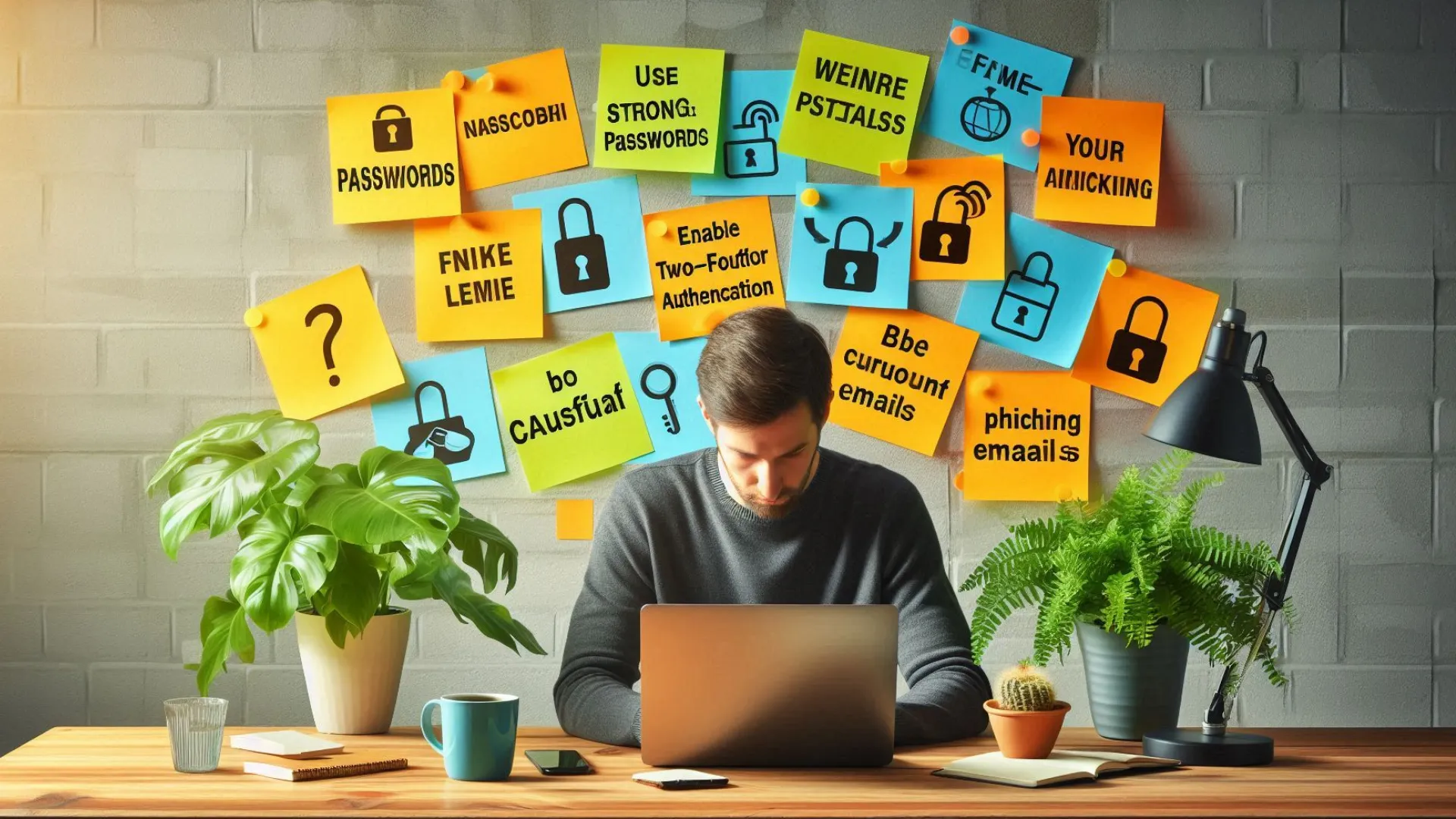FEATURED POST
How can I improve my online security practices?
- Get link
- X
- Other Apps
In today's interconnected world, online security is more important than ever. With cyber threats evolving rapidly, it's crucial to stay ahead of potential risks and safeguard your digital presence.
Also read | Understanding the Microsoft Outage: A Comprehensive Overview
Here are some essential strategies to improve your online security practices:
1. Use Strong, Unique Passwords: Create complex passwords that are difficult to guess and use a different password for each of your accounts. Consider using a password manager to keep track of them all.
2. Enable Two-Factor Authentication (2FA): Add an extra layer of security to your accounts by enabling 2FA, which requires a second form of verification in addition to your password.
Also read | What is CrowdStrike and How it works?
3. Keep Software Updated: Regularly update your operating system, applications, and security software to protect against the latest threats.
4. Be Wary of Phishing Attempts: Learn to recognize the signs of phishing and never click on suspicious links or attachments. Always verify the source before providing any personal information.
5. Secure Your Home Network: Protect your Wi-Fi network with a strong password and consider using a Virtual Private Network (VPN) for an additional layer of security.
6. Back Up Your Data: Regularly back up important data to an external drive or cloud service to prevent loss in case of a cyber attack or hardware failure.
Also read | Protecting Yourself During a Service Outage: Proactive Measures and Best Practices
7. Use Secure Connections: When browsing online, ensure the website uses HTTPS, indicating that the connection is secure.
8. Limit Personal Information Sharing: Be cautious about the amount of personal information you share online, especially on social media platforms.
9. Educate Yourself and Others: Stay informed about the latest cybersecurity threats and best practices. Share this knowledge with friends and family to help them stay secure as well.
10. Regularly Review Account Settings: Check the privacy and security settings on your online accounts and adjust them to your comfort level.
11. Use Antivirus Software: Install reputable antivirus software and keep it updated to detect and remove malware.
Also read | Identifying Phishing Scams: A Guide to Staying Secure Online
12. Be Cautious with Public Wi-Fi: Avoid conducting sensitive transactions over public Wi-Fi networks. If necessary, use a VPN to encrypt your connection.
13. Monitor Your Accounts: Regularly check your financial and social accounts for unauthorized activity. Early detection can prevent further damage.
14. Secure Your Devices: Lock your devices with passcodes and enable tracking or remote wiping capabilities in case they are lost or stolen.
15. Think Before You Click: Always take a moment to consider the legitimacy of a request or offer before clicking on a link or downloading an attachment.
Also read | Microsoft's massive outage explained in 10 points
By implementing these strategies, you can significantly enhance your online security and protect yourself from cyber threats. Remember, staying secure online is an ongoing process that requires vigilance and a proactive approach. For more detailed information and step-by-step guides on improving your online security, explore the resources provided by cybersecurity experts and reputable online safety centers. Stay safe!
🔽 RELATED VIDEO: This is how Starlink works ↴
📢Like this Article or have something to say? Write to us in the comment section, or connect with us on Facebook Threads Twitter LinkedIn using #TechRecevent.
- Get link
- X
- Other Apps




Comments
Post a Comment
Your comments encourage us to work better.